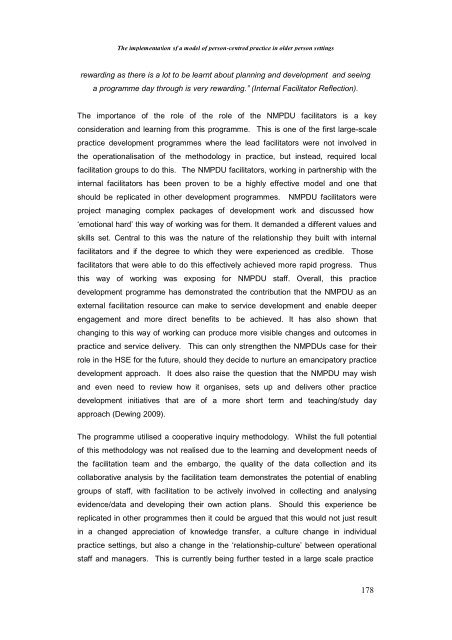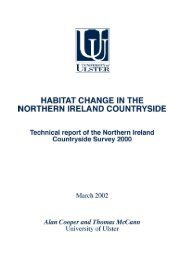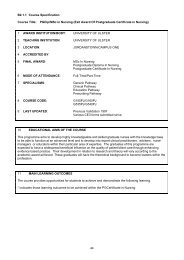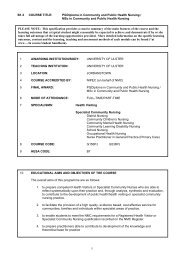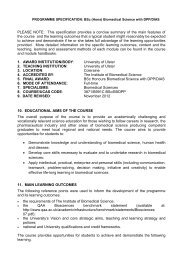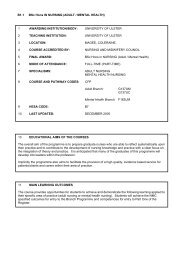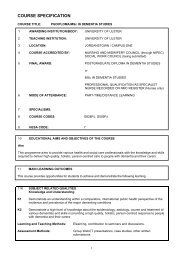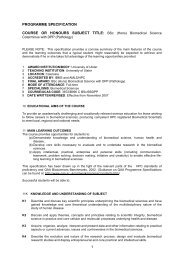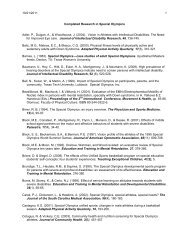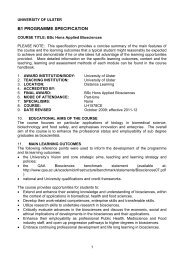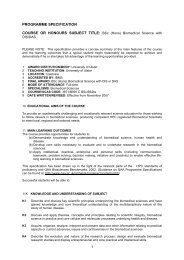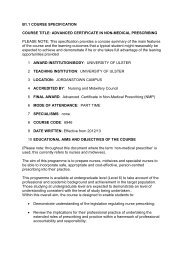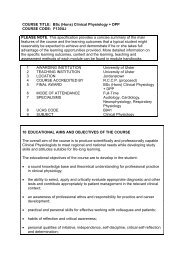The Implementation of a Model of Person-Centred Practice In Older ...
The Implementation of a Model of Person-Centred Practice In Older ...
The Implementation of a Model of Person-Centred Practice In Older ...
Create successful ePaper yourself
Turn your PDF publications into a flip-book with our unique Google optimized e-Paper software.
<strong>The</strong> implementation <strong>of</strong> a model <strong>of</strong> person-centred practice in older person settings<br />
rewarding as there is a lot to be learnt about planning and development and seeing<br />
a programme day through is very rewarding.” (<strong>In</strong>ternal Facilitator Reflection).<br />
<strong>The</strong> importance <strong>of</strong> the role <strong>of</strong> the role <strong>of</strong> the NMPDU facilitators is a key<br />
consideration and learning from this programme. This is one <strong>of</strong> the first large-scale<br />
practice development programmes where the lead facilitators were not involved in<br />
the operationalisation <strong>of</strong> the methodology in practice, but instead, required local<br />
facilitation groups to do this. <strong>The</strong> NMPDU facilitators, working in partnership with the<br />
internal facilitators has been proven to be a highly effective model and one that<br />
should be replicated in other development programmes. NMPDU facilitators were<br />
project managing complex packages <strong>of</strong> development work and discussed how<br />
‘emotional hard’ this way <strong>of</strong> working was for them. It demanded a different values and<br />
skills set. Central to this was the nature <strong>of</strong> the relationship they built with internal<br />
facilitators and if the degree to which they were experienced as credible. Those<br />
facilitators that were able to do this effectively achieved more rapid progress. Thus<br />
this way <strong>of</strong> working was exposing for NMPDU staff. Overall, this practice<br />
development programme has demonstrated the contribution that the NMPDU as an<br />
external facilitation resource can make to service development and enable deeper<br />
engagement and more direct benefits to be achieved. It has also shown that<br />
changing to this way <strong>of</strong> working can produce more visible changes and outcomes in<br />
practice and service delivery. This can only strengthen the NMPDUs case for their<br />
role in the HSE for the future, should they decide to nurture an emancipatory practice<br />
development approach. It does also raise the question that the NMPDU may wish<br />
and even need to review how it organises, sets up and delivers other practice<br />
development initiatives that are <strong>of</strong> a more short term and teaching/study day<br />
approach (Dewing 2009).<br />
<strong>The</strong> programme utilised a cooperative inquiry methodology. Whilst the full potential<br />
<strong>of</strong> this methodology was not realised due to the learning and development needs <strong>of</strong><br />
the facilitation team and the embargo, the quality <strong>of</strong> the data collection and its<br />
collaborative analysis by the facilitation team demonstrates the potential <strong>of</strong> enabling<br />
groups <strong>of</strong> staff, with facilitation to be actively involved in collecting and analysing<br />
evidence/data and developing their own action plans. Should this experience be<br />
replicated in other programmes then it could be argued that this would not just result<br />
in a changed appreciation <strong>of</strong> knowledge transfer, a culture change in individual<br />
practice settings, but also a change in the ‘relationship-culture’ between operational<br />
staff and managers. This is currently being further tested in a large scale practice<br />
178


